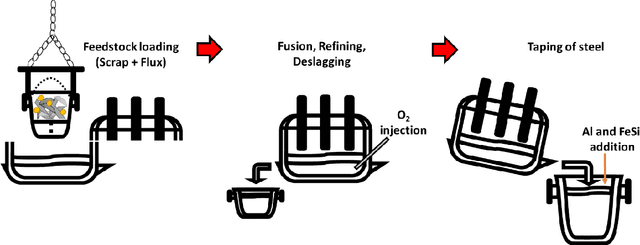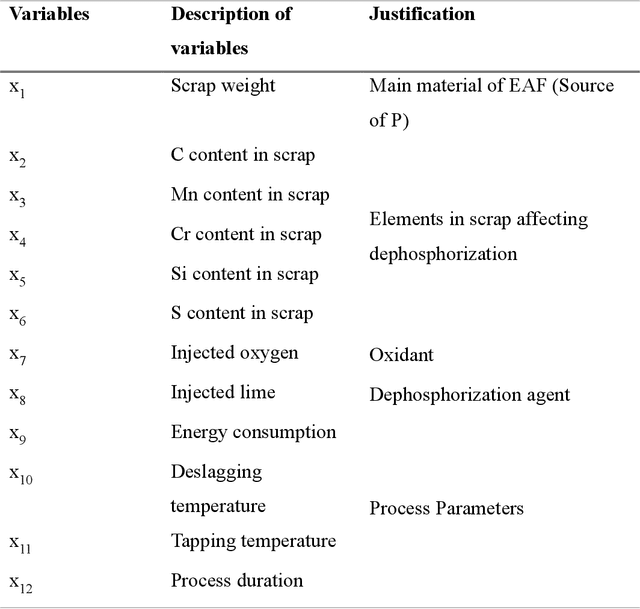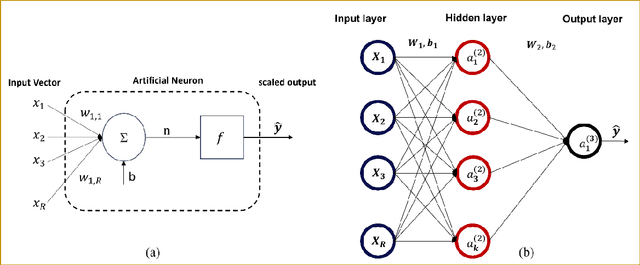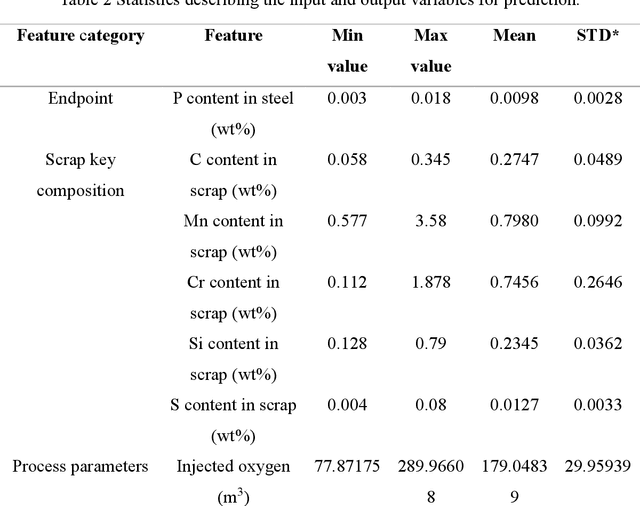Prediction of Final Phosphorus Content of Steel in a Scrap-Based Electric Arc Furnace Using Artificial Neural Networks
Paper and Code
Oct 25, 2024



The scrap-based electric arc furnace process is expected to capture a significant share of the steel market in the future due to its potential for reducing environmental impacts through steel recycling. However, managing impurities, particularly phosphorus, remains a challenge. This study aims to develop a machine learning model to estimate the steel phosphorus content at the end of the process based on input parameters. Data were collected over two years from a steel plant, focusing on the chemical composition and weight of the scrap, the volume of oxygen injected, and process duration. After preprocessing the data, several machine learning models were evaluated, with the artificial neural network (ANN) emerging as the most effective. The best ANN model included four hidden layers. The model was trained for 500 epochs with a batch size of 50. The best model achieves a mean square error (MSE) of 0.000016, a root-mean-square error (RMSE) of 0.0049998, a coefficient of determination (R2) of 99.96%, and a correlation coefficient (r) of 99.98%. Notably, the model achieved a 100% hit rate for predicting phosphorus content within +-0.001 wt% (+-10 ppm). These results demonstrate that the optimized ANN model offers accurate predictions for the steel final phosphorus content.
 Add to Chrome
Add to Chrome Add to Firefox
Add to Firefox Add to Edge
Add to Edge